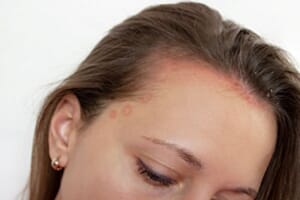A new study has found that pollen not only causes hay fever but can also cause eczema flare ups and rosacea flare ups, meaning Spring time can be a problematic time for sensitive skin sufferers.
Although hay fever is a very common allergy in spring time, around 30 million people in the UK are estimated to suffer from hay fever symptoms in the next 20 years, a new study has found that it’s not just the respiratory system that can be effected.
Sneezing, blocked noses and streaming eyes are all well-known hay fever symptoms, but skin flare ups, rashes and inflammation are less commonly associated with hay fever symptoms.
However new evidence suggest that pollen also causes allergic reactions and flare ups in skin, particularly for people with sensitive or inflammatory skin conditions such as eczema, dermatitis or rosacea.
The published study, reported this week in the Japan Times (Japan has one of the highest rates of hay fever in the world due to the pollution), found that pollen, in particular cedar pollen, can disrupt the skin barrier function. A weakening or disruption of the skin barrier can cause rashes and lead to flare ups and irritation as well as letting harmful skin bacteria in more easily leading to inflammation and break outs.
If the skin is already susceptible to weakened barrier function such as with eczema, dermatitis and rosacea, then pollen could be a trigger for skin flare ups.







